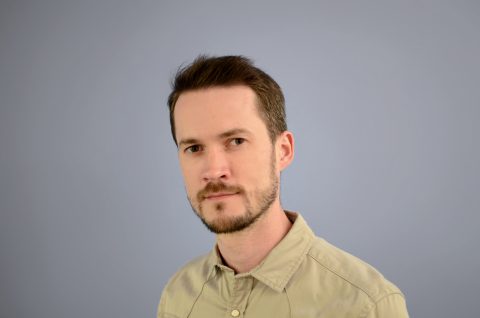Your first book, Gravity Changes, a collection of stories, won the BOA Short Fiction Prize. Your second book is a novel, First Cosmic Velocity, forthcoming this summer (it was recently named a Summer 2019 Barnes & Noble Discover Great New Writers selection — congratulations!). What can you tell us about your novel? How did you transition from writing short stories to writing a novel?
First Cosmic Velocity is set in the Soviet space program in the 1960s, but a version of the space program that I mostly made up. It draws on my several fascinations with space exploration, the Cold War, and the conspiracy theories that grew up around the program because of Russia’s intense secrecy. For example, the Chief Designer is a character in my novel, and he’s referred to only by his title because the real Chief Designer, Sergei Korolev, was never revealed to the public until after his death. Similarly, there were secrets the space program kept until the late 1980s or even after the fall of the Soviet Union. So while the big secret in my book is fictional, it’s not as far removed from reality as it might seem.
This is actually the second novel manuscript I’ve completed. The first is super weird, and I hope to one day see it in print, but it’s probably too weird for a lot of publishers. However, having one completed and revised manuscript under my belt made writing the next one much, much easier. And the product is stronger than it would have been if I hadn’t had a round of practice beforehand.
My approach to stories is usually quite different from my approach to long-form. With stories, I tend to dive into one small idea and see how much I can explore/explode it. With a novel, I find myself branching away from the initial idea, trying to discover what it means for more characters and in more settings. I do have a few stories that are traditional narratives, but my short work tends toward the experimental. I don’t think I could keep up those kinds of experiments for a whole book.
A few of my future novel ideas are actually stories that didn’t work because they refused to stay contained within a smaller experiment. They suggested expansion. So maybe what dictates the length of a piece is the idea itself. Can I resolve a story in 5, 10, or 15 pages, or does it need to keep going. First Cosmic Velocity, though, was always a novel. I saw from the start that a story about space needed just that: space.
What do you love about flash fiction?
I wonder at flash fiction like I do an intricate scale model, kind of dumbfounded at a writer’s ability to arrange each tiny piece just so. To be honest, I suspect many of the people submitting are better at flash than me. I’m not always deft enough to stick to the form. Many of the things I start as flash end up expanding. It’s the same sort of thing that happens when a story idea grows into a novel. Some of my longer stories began life as failed flash experiments. So I admire people who focus on flash and can manipulate narrative on such a small scale. It’s a rare talent. Additionally, I think it’s an ideal form for sharing in this socially networked moment. I’m rambling with this answer, and I know a good flash writer would have wrapped things up already.
Where do you write?
For most of my writerly career, I wrote in coffee shops. I still do that on weekends (I’m looking at you, Java Shack!), but now that I’m staff at The Writer’s Center in Bethesda, MD, I use our writing carrels on weekday mornings. The building isn’t currently open to the public before 10am—check back in September when we should be welcoming early bird writers—so I have the whole 12,000-square-foot place to myself. Creepily, sometimes the toilets flush on their own.
I do miss the action and interruptions of coffee shops. That setting always gave me a nice balance of discipline (I was there every day) and distraction. The routine made sure I had dedicated writing time without letting me become too precious about it. When I lived in Savannah and wrote at Gallery Espresso, there was always a breakfast club of creatives and friends hanging out at a table or two, a daily support system, of sorts. I like feeling as if I’m a part of something larger even when I’m working on a personal project.
What kind of story would you love to find in the queue this week?
Send me your weird and your fantastical and your stories that aren’t afraid to think about their own conceits. I have a soft spot for stories that place something weird in an everyday setting. I adore metaphors for feelings written literally, à la Amelia Gray. I love a sense of discovery. Make me think a new way about something familiar and you’re already halfway to my heart.


 The core workshop of SmokeLong Fitness is all in writing, so you can take part from anywhere at anytime. We are excited about creating a supportive, consistent and structured environment for flash writers to work on their craft in a community. We are thrilled and proud to say that our workshop participants have won, placed, or been listed in every major flash competition. Community works.
The core workshop of SmokeLong Fitness is all in writing, so you can take part from anywhere at anytime. We are excited about creating a supportive, consistent and structured environment for flash writers to work on their craft in a community. We are thrilled and proud to say that our workshop participants have won, placed, or been listed in every major flash competition. Community works.